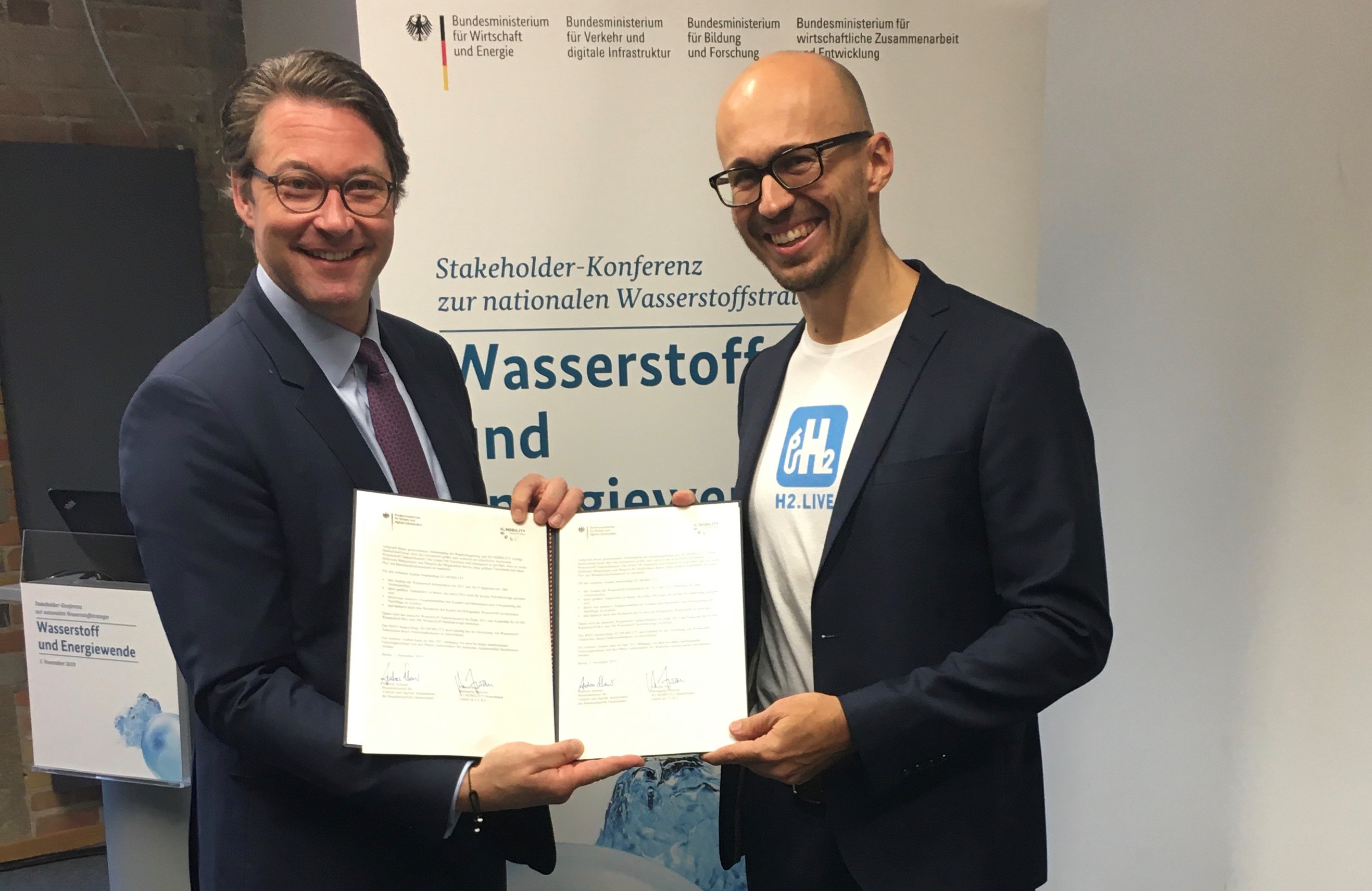
Berlin, 05 Nov 2019 | It’s universally agreed that hydrogen and fuel-cell technology have great potential for significantly reducing emissions in the transport sector. Today at the Stakeholder Conference on the National Hydrogen Strategy in Berlin, Andreas Scheuer, Minister of the Federal Ministry of Transport and Digital Infrastructure (BMVI) and Nikolas Iwan, Managing Director of H2 MOBILITY Deutschland GmbH & Co. KG, signed a Memorandum of Understanding on the further expansion of the hydrogen (H2) infrastructure. Under the agreement, by the end of 2021 more than 60,000 fuel cell cars and 500 commercial vehicles would be able to refuel in Germany.
The first phase of the hydrogen infrastructure expansion will be completed by mid-2020. At that point, with 100 stations in seven regions (Hamburg, Berlin, Rhine-Ruhr, Frankfurt, Nuremberg, Stuttgart and Munich) as well as along the connecting arteries, Germany will have a public hydrogen infrastructure that will make possible hydrogen mobility with virtually no restrictions.
Today’s Memorandum of Understanding will see the H2 filling station network grow by as many as thirty stations by the end of 2021. The new H2 stations will be larger: While most H2 stations today have a capacity sufficient for refuelling 40 to 50 cars per day, in future it will be possible to fill up about three times as many vehicles at one station. H2 MOBILITY is thus not only preparing itself for the market ramp-up of hydrogen-powered passenger cars, but is also making it possible to service light and heavy commercial vehicles at selected sites. The first few manufacturers, including Hyundai and Toyota, as well as the German companies StreetScooter and Faun, have already announced hydrogen models in this sector for the years ahead. Toyota, for one, will increase its production in the hydrogen passenger-car sector tenfold from 2020, and Hyundai has announced a similarly large scale-up. The new hydrogen stations will be set up in the regions with the greatest demand for hydrogen.
Hydrogen-powered mobility
Germany’s federal government has supported hydrogen and fuel-cell technology since 2007 with its National Innovation Programme for Hydrogen and Fuel Cell Technology (NIP). Among other things, the programme funds H2 filling stations, which at this time are being built and operated in Germany primarily by H2 MOBILITY Deutschland and its shareholders Air Liquide, Daimler, Linde, OMV, Shell and TOTAL.
Thanks to the joint efforts of the federal government and H2 MOBILITY, FCEV can already refuel in three to five minutes at 76 public hydrogen stations in Germany, for ranges of 500 to 700 km. The hydrogen stations are usually integrated into existing service stations. The design is compact and mainly uses standardised components for the dispensers, H2 storage, and compression. The operation of a hydrogen fuel pump is intuitive; refuelling is similar to that of conventional vehicles.
Memorandum of Understanding BMVI and H2 MOBILITY (only German)
PRESS ENQUIRIES
H2 MOBILITY Deutschland
Sybille Riepe, riepe@h2-mobility.de, +49 (0)170-5870317